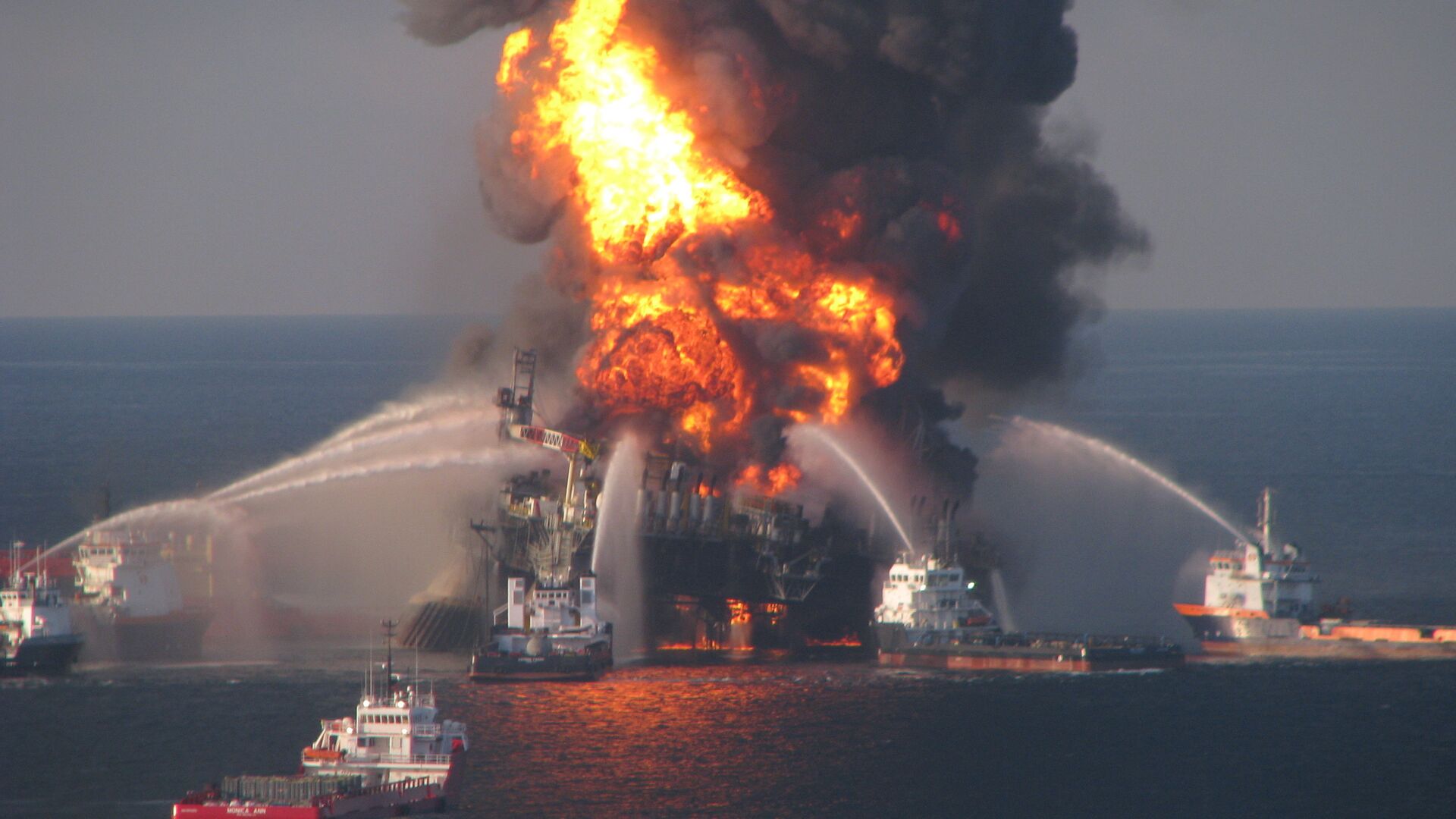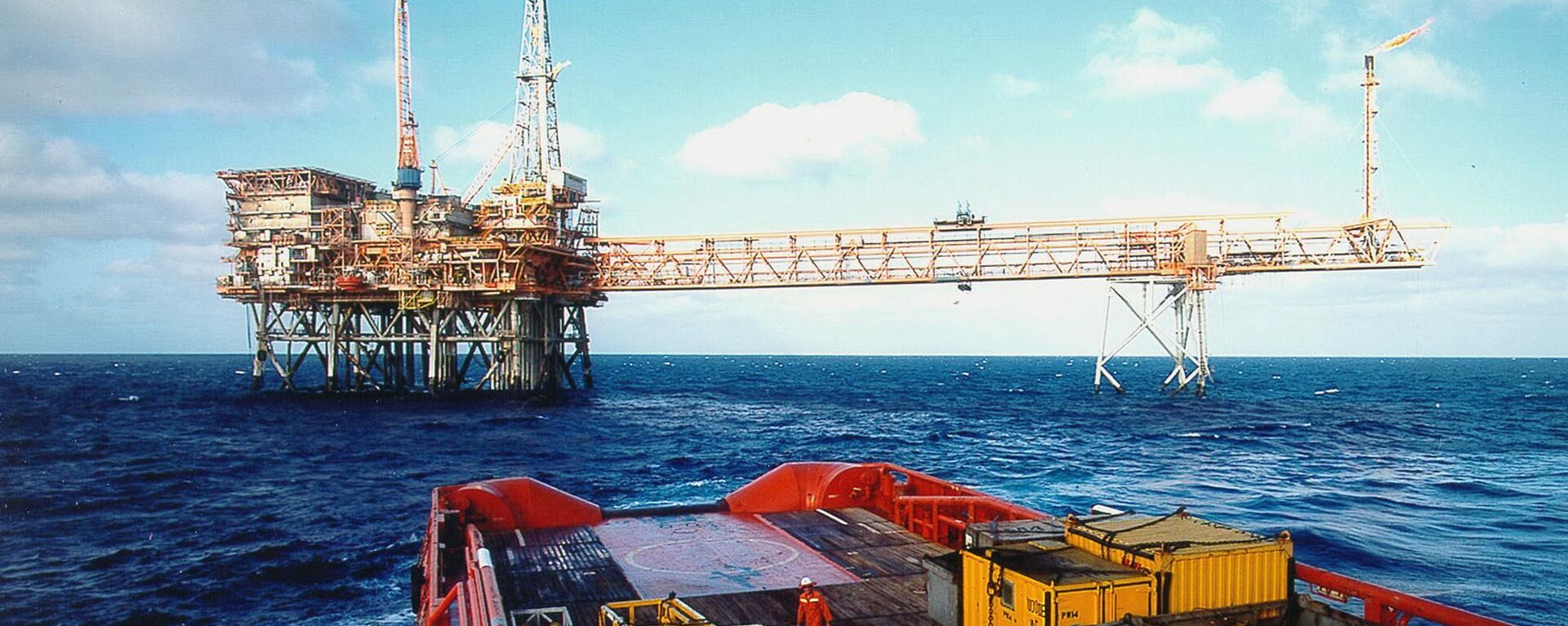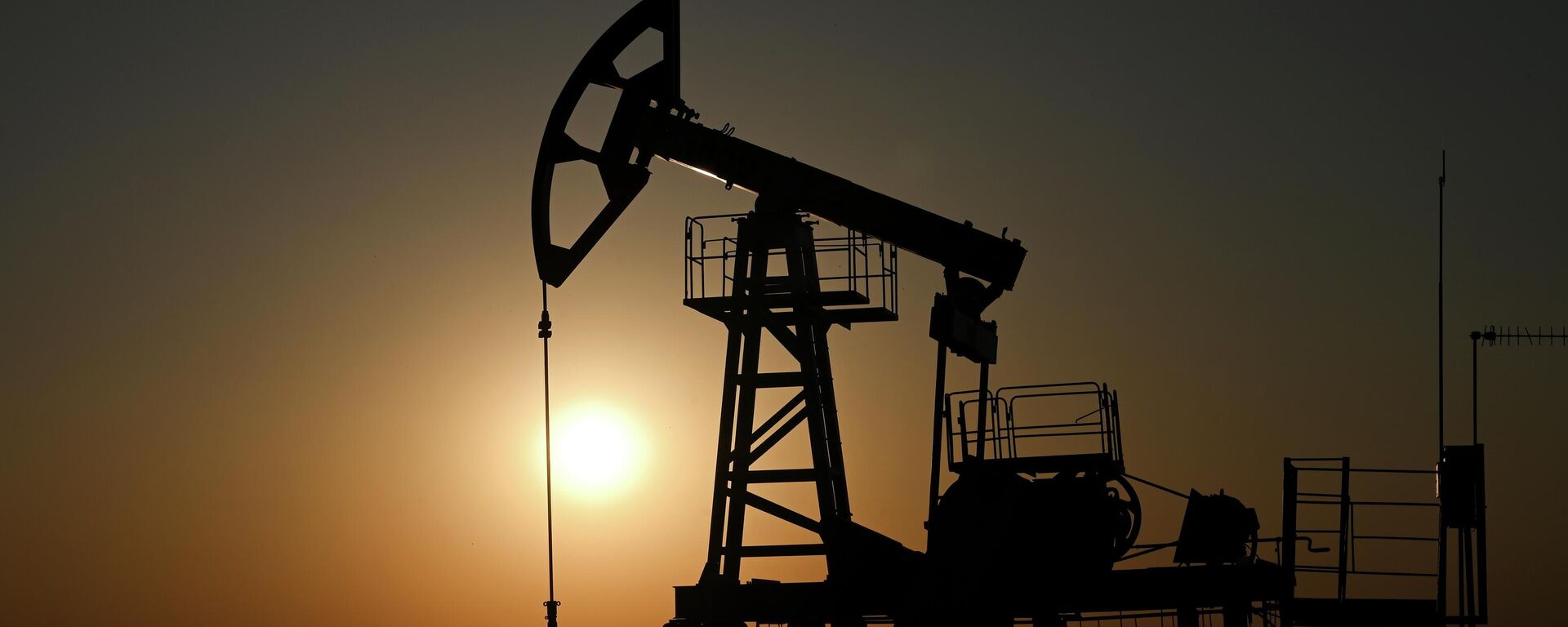Biden Reinstates Offshore Drilling Rules Designed to Prevent Deepwater Horizon Disaster

© Flickr / EPI2oh
Subscribe
The Biden administration has restored a set of offshore drilling safety regulations put in place in the wake of the 2010 Deepwater Horizon disaster, which his predecessor, Donald Trump, had removed. The move comes as the White House looks to buttress domestic oil production due to its boycott of Russian energy exports.
The US Department of the Interior announced on Tuesday it was restoring the “final well control rule,” which requires a series of safety practices designed to prevent another disaster like that which befell Deepwater Horizon, a BP oil rig that exploded in the Gulf of Mexico in 2010, killing 11 people and leading to the largest oil spill in history.
The rule requires blowout preventer systems (BOPs) to always be able to close and seal the wellbore on an offshore oil rig up to the maximum anticipated surface pressure, along with several related safety practices, and requires operators to report their test results, analyses and investigations to the DoI’s Bureau of Safety and Environmental Enforcement (BSEE).
“Finalizing this rule will enable BSEE to continue to put the lives and livelihoods of workers first, as well as the protection of our waters and marine habitats,” BSEE Director Kevin Sligh said in the release. “This rule strengthens testing and performance requirements for blowout preventers and other well control equipment, provides for timely and robust analyses and investigations into failures, and clarifies reporting requirements to ensure we have appropriate visibility over information and data critical to maintaining well integrity.”
The rule was made in 2016, following a report by the US Chemical Safety Board that determined a blowout preventer failure was a major part of the Deepwater Horizon disaster. It was removed by the Trump administration in 2019 as part of a massive rollback aimed at maximizing US domestic petroleum production. It argued the safety rules were an undue burden on oil and gas companies.
Jackie Savitz, the chief policy officer for ocean conservation nonprofit Oceana, told US media that reinstating the rule was “a big step in getting us back on track,” but noted offshore drilling would always be dangerous.
“There is no way we can do enough to prevent an oil spill, it is an inherently risky business and it’s not a matter of if, but when we will have another one. So a big part of prevention has to be to stop selling new leases,” she said.
The American Petroleum Institute (API) blasted Biden’s move, claiming it would “weaken US security.”
“The recommended actions are not justified by existing data nor operational experience, would impose significant burdens on the men and women currently working in the region, and unfairly single out oil and gas traffic in an area that is one of the most used maritime areas in US waters,” said API Vice President of Upstream Policy Holly Hopkins.
Ironically, the Biden administration has adopted the new rules as it is pushing petroleum companies to expand their production after he instituted a boycott of Russian energy exports last year, which accounted for 9% of US oil and gas imports.
According to new federal projections released earlier this month, the US is expected to exceed 12.8 million barrels of oil per day in domestic production before the end of the year - its highest-ever average, about 500,000 more barrels per day than during the previous maximum in 2019, set under Trump.
That outpaces even Saudi Arabia, which produces roughly 10 million barrels of oil per day, according to OPEC.
Hunter Kornfeind, oil market analyst at Rapidan Energy Group, told US media “there’s a narrative out there that US production is dead or dying,” adding that it’s “maturing, it’s not dead.”
Indeed, Biden’s critics and challengers in the Republican Party who seek to supplant him in the 2024 presidential election have claimed his energy policies are a disaster for the petroleum industry.
"Inflation was caused, in my opinion, by energy, because it's so big," Trump said in a US television interview last week. "It's like all encompassing, everything. You make donuts in the ovens and the trucks that deliver them, and no matter what you do, it's so much about energy."
"They cut it off, and again, we were drilling much more. We were a bigger force than Russia and Saudi Arabia individually," he continued. "In a year and a half, we would have been a bigger force than them combined and we would have made so much money. We would have been paying off debt, we would have been doing things that nobody's ever seen this country do."



